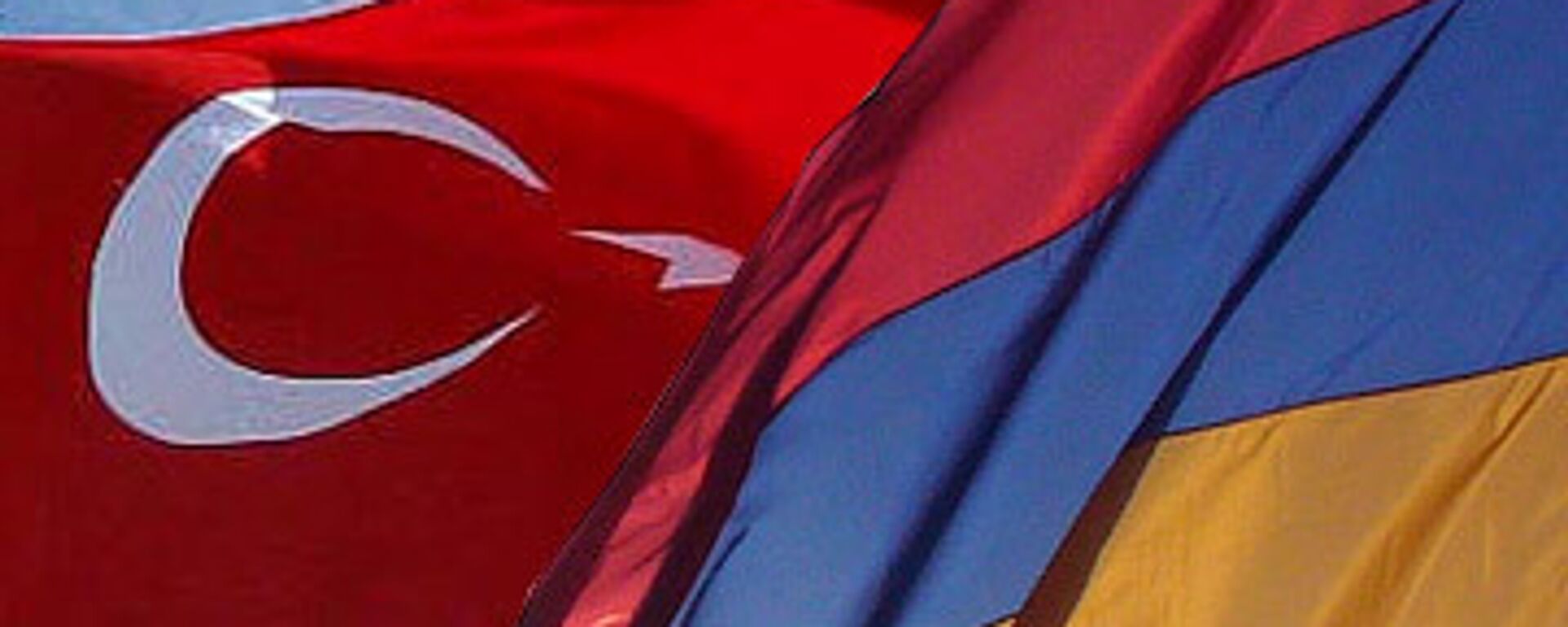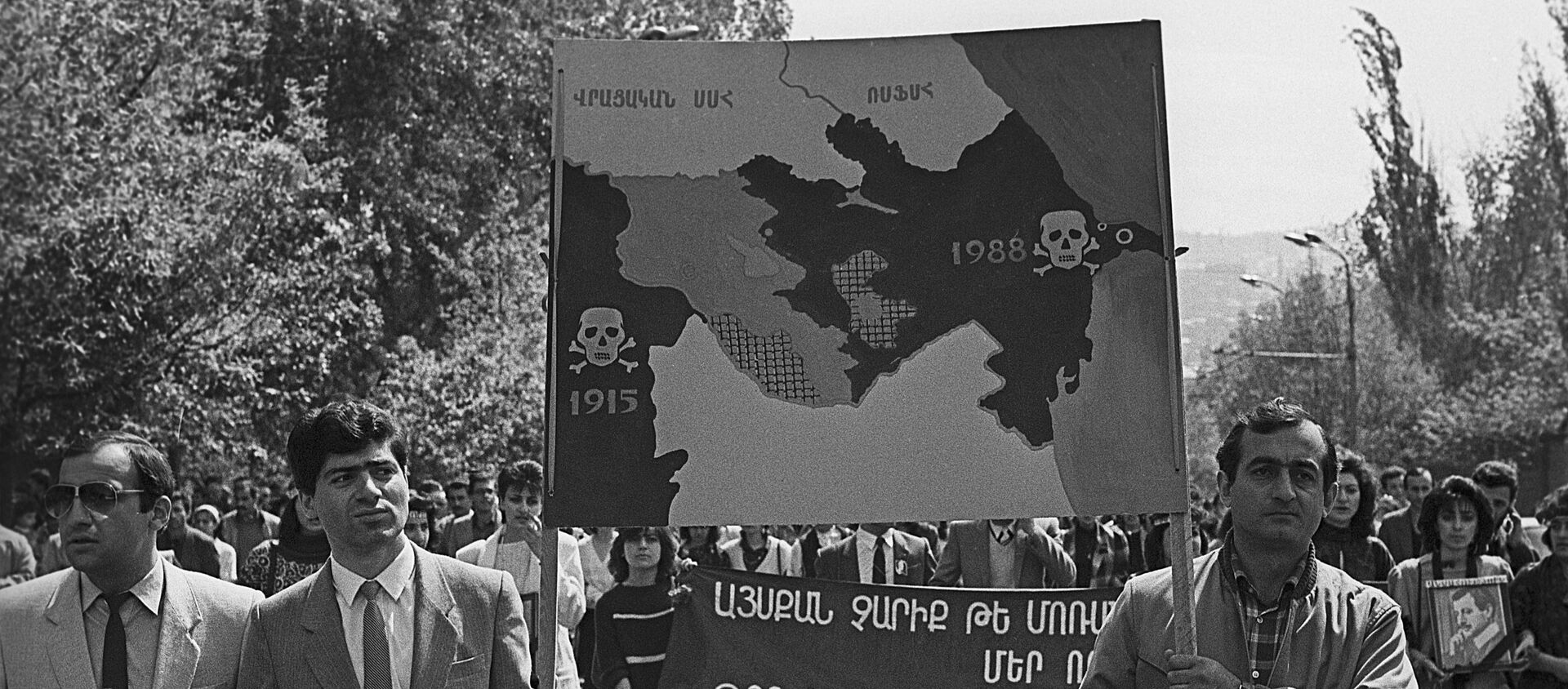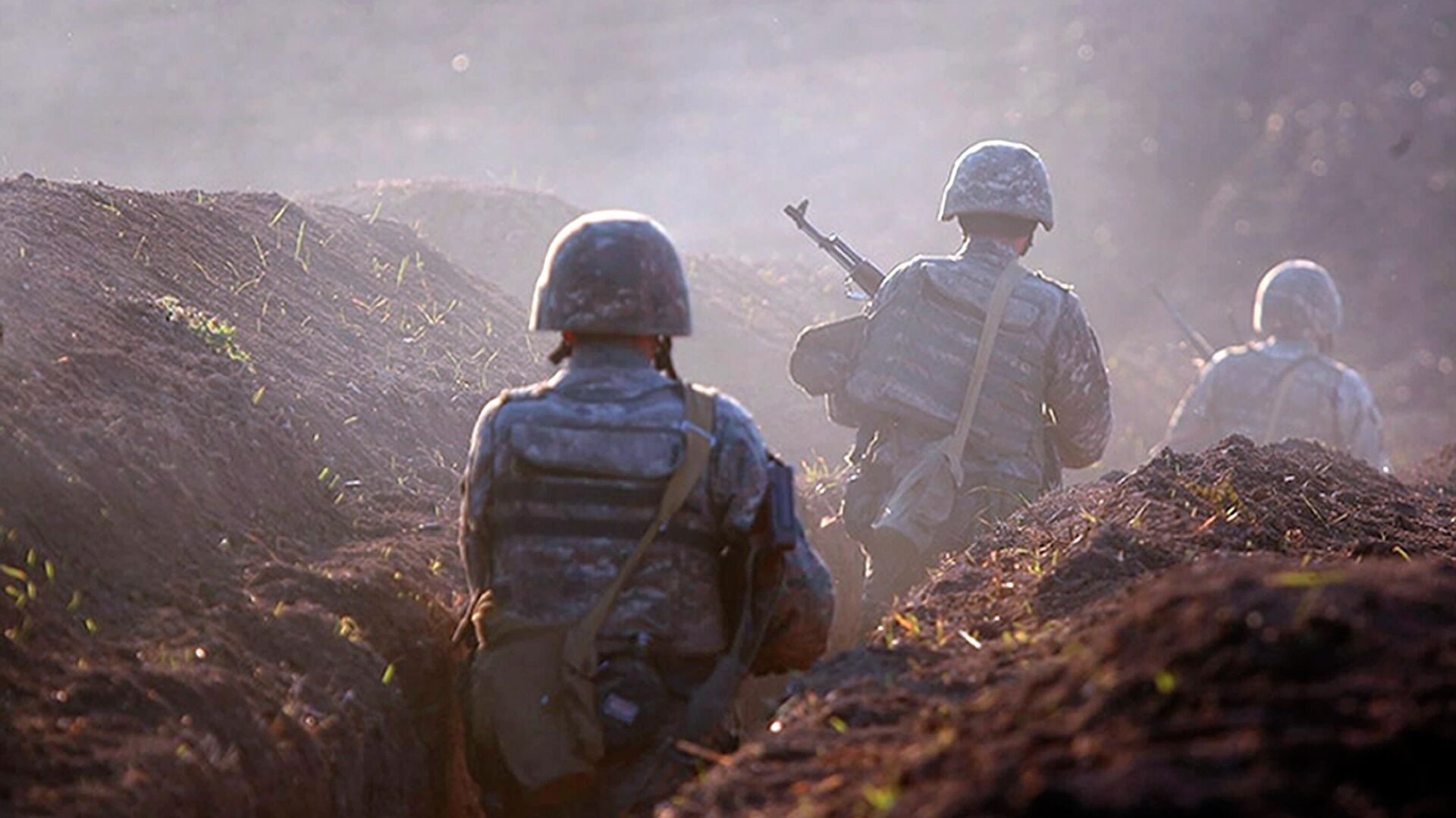https://sputnikglobe.com/20221011/azerbaijan-armenia-reached-agreements-on-fundamental-points-of-peace-treaty-cavusoglu-says--1101712374.html
Azerbaijan, Armenia Have Agreed on Fundamental Points of Peace Treaty, Turkey's Cavusoglu Says
Azerbaijan, Armenia Have Agreed on Fundamental Points of Peace Treaty, Turkey's Cavusoglu Says
Sputnik International
Situated in the South Caucasus, the pair of post-Soviet republics have faced an on-again off-again conflict over the common border between them, as well as the... 11.10.2022, Sputnik International
2022-10-11T08:57+0000
2022-10-11T08:57+0000
2022-10-11T09:51+0000
turkiye
world
armenia
azerbaijan
peace
treaty
https://cdn1.img.sputnikglobe.com/img/07e6/09/0d/1100709042_0:204:3042:1915_1920x0_80_0_0_6671c1e538541c93bc9f2121c29eefd9.jpg
Azerbaijan and Armenia have agreed on the main points of a peace treaty, Turkish Foreign Minister Mevlut Cavusoglu has announced.The Turkish diplomat also reiterated that the peace agreement talks between Azerbaijan and Armenia and negotiations on the normalization of relations between Yerevan and Ankara cannot take place separately from one another. "We have spoken about this repeatedly," Cavusoglu said. He added that Turkey is "sincere" in its desire to normalize ties.The foreign minister indicated that the talks between President Recep Tayyip Erdogan and Armenian Prime Minister Nikol Pashinyan in Prague last week were "positive."Erdogan and Pashinyan met in the Czech capital on October 6, on the sidelines of a summit of the European Political Community - a new multinational organization designed to facilitate regional cooperation created on the proposal of French President Emmanuel Macron in May. Pashinyan also met with Azerbaijani President Ilham Aliyev at the summit.Tensions between Armenia and Azerbaijan have escalated in recent weeks amid back-and-forth accusations of violations of a ceasefire in a border conflict that began in May 2021. That conflict saw a dramatic escalation between September 12-14 before a shaky ceasefire. Each side blamed the other for the escalation. Moscow has called on both sides to adhere to the ceasefire, and called on Baku and Yerevan to resolve the dispute between them through diplomatic means.Nagorno-Karabakh, a disputed landlocked region internationally recognized as part of Azerbaijan, but governed by the Armenian-backed Republic of Artsakh, is another source of constant tensions between the two countries. The region faced a month-and-a-half of intense clashes between September and November 2020, with Azerbaijani forces capturing large swathes of land adjacent to the territory, and part of Nagorno-Karabakh proper, before signing a ceasefire agreement with Armenia, with Russian peacekeeping forces tasked with helping to ensure its implementation.The Armenian-Azerbaijani crisis is rooted in events in the 1980s preceding the collapse of the Soviet Union, during which time nationalist sentiments whipped up by local separatist politicians and anti-Union forces in Moscow sparked an ethnic conflict between peoples who had lived side by side peacefully for many decades.
https://sputnikglobe.com/20221006/turkish-president-believes-in-full-normalization-of-relations-with-armenia-1101587272.html
https://sputnikglobe.com/20201005/how-a-senior-gorbachev-advisors-involvement-in-karabakh-conflict-helped-set-region-on-fire-1080664670.html
turkiye
armenia
azerbaijan
Sputnik International
feedback@sputniknews.com
+74956456601
MIA „Rosiya Segodnya“
2022
News
en_EN
Sputnik International
feedback@sputniknews.com
+74956456601
MIA „Rosiya Segodnya“
Sputnik International
feedback@sputniknews.com
+74956456601
MIA „Rosiya Segodnya“
turkiye, armenia, azerbaijan, peace, treaty
turkiye, armenia, azerbaijan, peace, treaty
Azerbaijan, Armenia Have Agreed on Fundamental Points of Peace Treaty, Turkey's Cavusoglu Says
08:57 GMT 11.10.2022 (Updated: 09:51 GMT 11.10.2022) Situated in the South Caucasus, the pair of post-Soviet republics have faced an on-again off-again conflict over the common border between them, as well as the contested region of Nagorno-Karabakh, for over three decades, with tensions repeatedly escalating into open warfare.
Azerbaijan and Armenia have agreed on the main points of a peace treaty, Turkish Foreign Minister Mevlut Cavusoglu has announced.
"An agreement has been reached on the principle points. There are five of them. They include the recognition of one another's territorial integrity, the demarcation of borders, etc. It remains only to implement them," Cavusoglu said in an interview with Turkey's tvnet on Tuesday.
The Turkish diplomat also reiterated that the peace agreement talks between Azerbaijan and Armenia and negotiations on the normalization of relations between Yerevan and Ankara cannot take place separately from one another. "We have spoken about this repeatedly," Cavusoglu said. He added that Turkey is "sincere" in its desire to normalize ties.
The foreign minister indicated that the talks between President Recep Tayyip Erdogan and Armenian Prime Minister Nikol Pashinyan in Prague last week were "positive."

6 October 2022, 21:36 GMT
Erdogan and Pashinyan met in the Czech capital on October 6, on the sidelines of a summit of the European Political Community - a new multinational organization designed to facilitate regional cooperation created on the proposal of French President Emmanuel Macron in May. Pashinyan also met with Azerbaijani President Ilham Aliyev at the summit.
Tensions between Armenia and Azerbaijan have escalated in recent weeks amid
back-and-forth accusations of violations of a ceasefire in a
border conflict that began in May 2021. That conflict saw a dramatic escalation between September 12-14 before a shaky ceasefire. Each side blamed the other for the escalation. Moscow has called on both sides to adhere to the ceasefire, and called on Baku and Yerevan to resolve the dispute between them through diplomatic means.
Nagorno-Karabakh, a disputed landlocked region internationally recognized as part of Azerbaijan, but governed by the Armenian-backed Republic of Artsakh, is another source of constant tensions between the two countries. The region faced a month-and-a-half of intense clashes between September and November 2020, with Azerbaijani forces capturing large swathes of land adjacent to the territory, and part of Nagorno-Karabakh proper, before signing a ceasefire agreement with Armenia, with Russian peacekeeping forces tasked with helping to ensure its implementation.
The Armenian-Azerbaijani crisis is rooted in
events in the 1980s preceding the collapse of the Soviet Union, during which time nationalist sentiments whipped up by local separatist politicians and anti-Union forces in Moscow sparked an ethnic conflict between peoples who had lived side by side peacefully for many decades.

5 October 2020, 16:41 GMT






